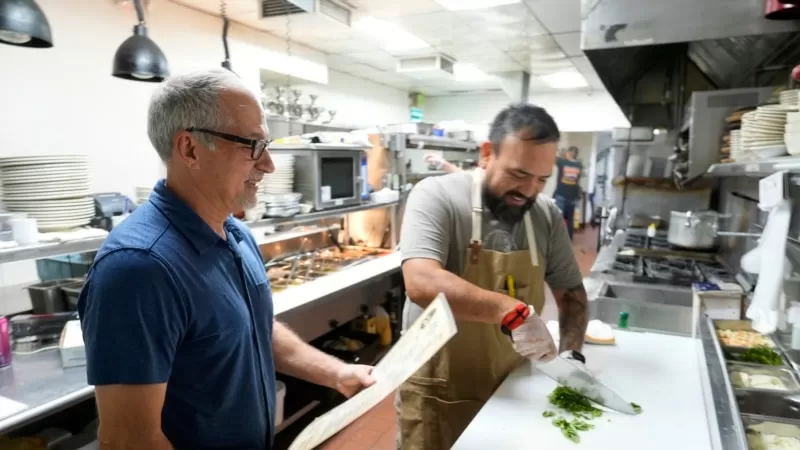Mel Nichols, a 37-year-old bartender in Phoenix, Arizona, may seem like she has a great job. With tips included, she can take home anywhere from $30 to $50 an hour. However, the uncertainty of how much she will make on a daily basis is a constant source of stress for her.
“As a bartender, you never know how much you’re going to make each day,” says Nichols, who has been in the service industry since she was a teenager. “The lack of security in our income can be really tough.”
This uncertainty exists largely because of federal labor law, which allows businesses to pay tipped workers, like food servers, bartenders, and bellhops, less than the minimum wage, as long as customer tips make up the difference. But this practice has been a topic of debate, and voters in Arizona and Massachusetts will have a chance to weigh in on it this November.
The ballot measures in these two states reflect an ongoing debate over the so-called subminimum wage. Advocates argue that this lower wage is essential for the sustainability of the service industry, while detractors believe it shifts the cost of labor onto consumers and leads to the exploitation of workers.
Currently, the amount tipped workers make varies by state. Fourteen states pay the federal minimum, which is just above $2 an hour for tipped workers and $7 an hour for non-tipped workers. In Arizona, employers can pay their tipped workers $3 less hourly than other workers, meaning that their base pay is $11.35 an hour.
However, voters in Arizona will have a chance to decide whether to approve a measure backed by state Republicans and the Arizona Restaurant Association to change the minimum for tipped workers. If approved, the minimum for tipped workers will be set 25% lower than the regular minimum wage, as long as their pay with tips is $2 above that minimum. Currently, the hourly minimum wage in Arizona is $14.35 and increases yearly according to inflation.
Similarly, voters in Massachusetts will also have a chance to weigh in on a measure that would eliminate the tiered minimum-wage system. The measure, put forward by One Fair Wage, a non-profit organization that works to end the subminimum wage, would incrementally increase the state’s tipped worker wage until it meets the regular minimum wage by January 2029. If approved, Massachusetts will join seven other states that currently have a single minimum wage. In fact, Michigan will soon join this group after a recent state Supreme Court ruling initiated a phase-out of the subminimum wage.
This issue is not limited to just these two states, as several others also have wage measures on the ballot. In California, voters will decide whether to raise the hourly minimum wage to $18 by 2026, making it the highest statewide minimum wage in the country. Measures in Alaska and Missouri would gradually raise the minimum wage to $15 an hour, while also requiring paid sick leave. Additionally, Washington D.C. and Chicago have also recently started to eliminate the subminimum wage.
Under current labor law, employers must ensure that workers receive the full minimum wage if they do not make that much with tips. However, not all employers comply with this law. In fact, one in ten restaurants and bars investigated by the U.S. Labor Department from 2010 to 2019 violated the Fair Labor Standards Act, resulting in these establishments paying $113.9 million in back wages.
This issue disproportionately affects women, who make up about 47% of the US workforce but nearly 70% of those in tipped professions, according to an AP analysis of US Census data.
In Arizona, Republican state Senator J.D. Mesnard, the sponsor of Proposition 138, believes that this measure is a win for both businesses and lower-wage workers. “The employer is protected in the sense that they can preserve this lower base, knowing that there are going to be tips on top of it,” Mesnard says. “The tipped worker is guaranteed to make more than minimum wage, which is more than they’re guaranteed today.”
However, many tipped workers like Nichols do not support this measure. “It would reduce my hourly, and anything that reduces my hourly is not something that I want to lean into,” she says. “I don’t believe that business owners need any more cuts in labor costs.”
Initially, Proposition 138 was proposed as a response to a ballot measure pushed by One Fair Wage to create a single minimum wage


